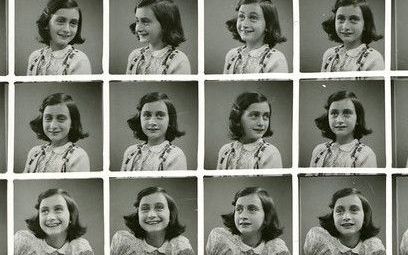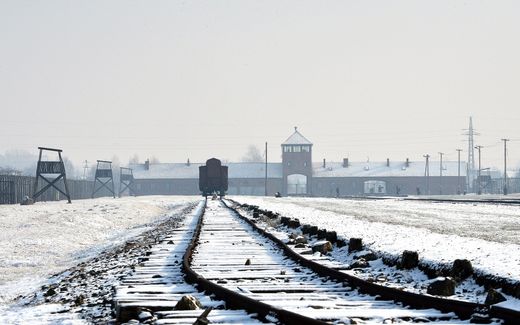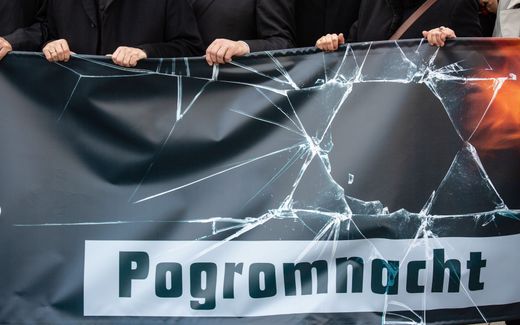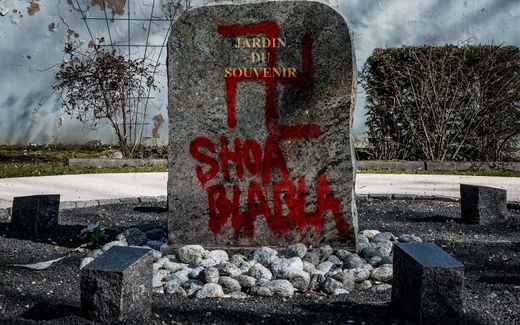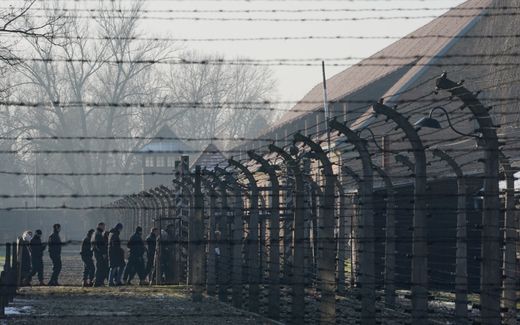Study: Quarter of Dutch young adults doubts truth Holocaust
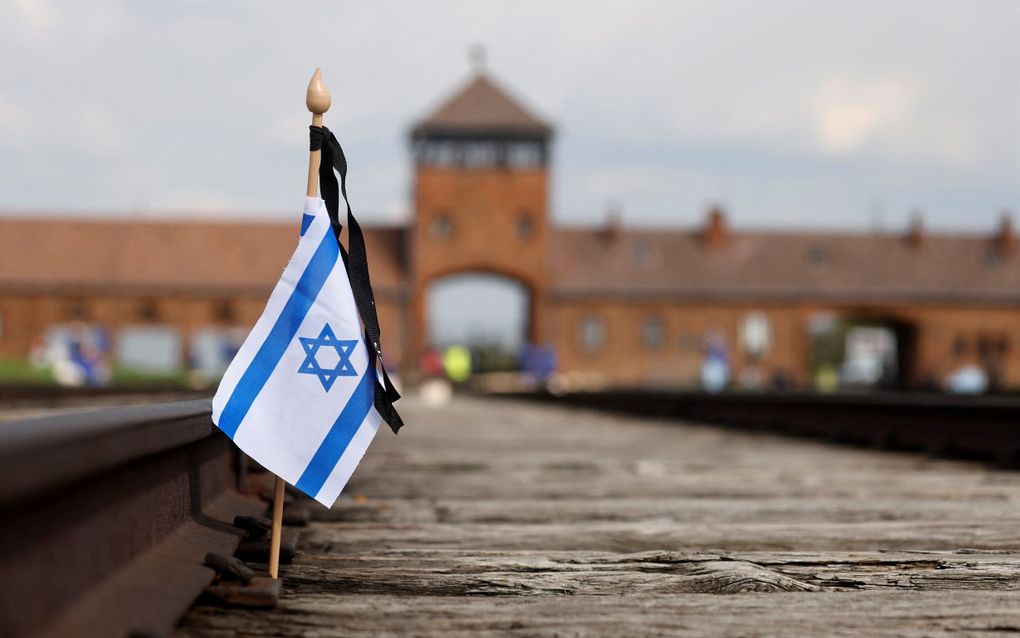
A small national flag of Israel has been placed on the rail tracks at the site of the former Auschwitz-Birkenau camp during commemorations to honour the victims of the Holocaust, near the historical gate of Birkenau (Auschwitz II) near the village of Brzezinka near Oswiecim, Poland. Photo AFP, Wojtek Radwanski
Western Europe
Almost a quarter of the Dutch born after 1980 thinks the Holocaust is a myth. Or they assume that the number of Jews murdered during World War II is heavily exaggerated.
A study from The Conference on Jewish Material Claims Against Germany, in short, Claims Conference, shows that of the generations born after 1980, a third to more than half know remarkably little about Jewish persecution or the genocide of the Second World War.
Only 59 per cent of people born after 1980 know that the Nazis killed 6 million Jews during the World War. About 37 per cent thinks this is heavily exaggerated and believes this number cannot be higher than 2 million. Most Dutch people do not see the Netherlands as a region where the Holocaust occurred, even though the number of deported Jews in the country was among the highest in Europe. And even though almost all know the name of Anne Frank, 27 per cent of the Dutch participants in the survey do not know that she died in a concentration camp.
Anti-Semitism acceptable
The Claims Conference questioned about 2000 Dutch people in December. It carried out the same research in the USA, the UK, France, Austria and Canada.
In France, researchers found that most French (57 per cent) do not know how many Jews were killed during the Holocaust. Among millennials, this number is significantly higher, namely 69 per cent. Of the latter group, 20 per cent believes that anti-Semitic views are acceptable.
More than half of the respondents in France believe that a genocide like the Holocaust could happen again in Europe.
Victims
In Austria, 56 per cent of the respondents to the survey indicated that they did not know that 6 million Jews were killed during the Holocaust. Among the youngest generations, this percentage is even higher, 58 per cent.
A quarter of the respondents believe that less than a million Jews died during the genocide. Among the younger people, this percentage is almost a third. About 36 per cent of the Austrians in general and 42 per cent of Millennials and Generation Z believe that the number of victims of the Holocaust is 2 million at the max.
National history
The survey results lead to worries on the side of Jewish organisations and Holocaust survivors. “I am upset and deeply concerned”, the Dutch Max Arpels Lezer says to the Reformatorisch Dagblad. He survived the Holocaust when he was a child. He worries that many of his fellow Dutch citizens do not know their national history. “Without education, future generations will not understand the impact of the Holocaust.”
Kees Ribbens, a senior researcher at the Dutch Institute for War, Holocaust, and Genocide Studies (NIOD), calls the research findings “downright shocking”. He also worries about the fact that a small group believes that the diary of Anne Frank is fake and that some people think that the Holocaust can happen again. “We need to consider this carefully. To what extent are Holocaust deniers open to information from education and museums? Is their denial a result of ignorance, disinterest, or a willful denial and distortion of historical facts?”
Democracy
The Anne Frank Association pleads for better education on the Holocaust. It finds it very important that young people learn at school what the Holocaust was. For this, teachers can use the story of Anne Frank. “It shows how democracy and the rule of law were shoved aside, how people were excluded from society, deported and murdered.”
The research also showed that a majority of Dutch people are in favour of more education on the Holocaust. Three-quarters of the respondents indicate that it is important to keep teaching lessons about the Holocaust. One of their motivations is to prevent a genocide of that scale from happening again. Among Dutch young adults, 62 per cent finds Holocaust education necessary. Of the French respondents, 82 per cent sees education as a crucial element in the fight against anti-Semitism.
Related Articles


